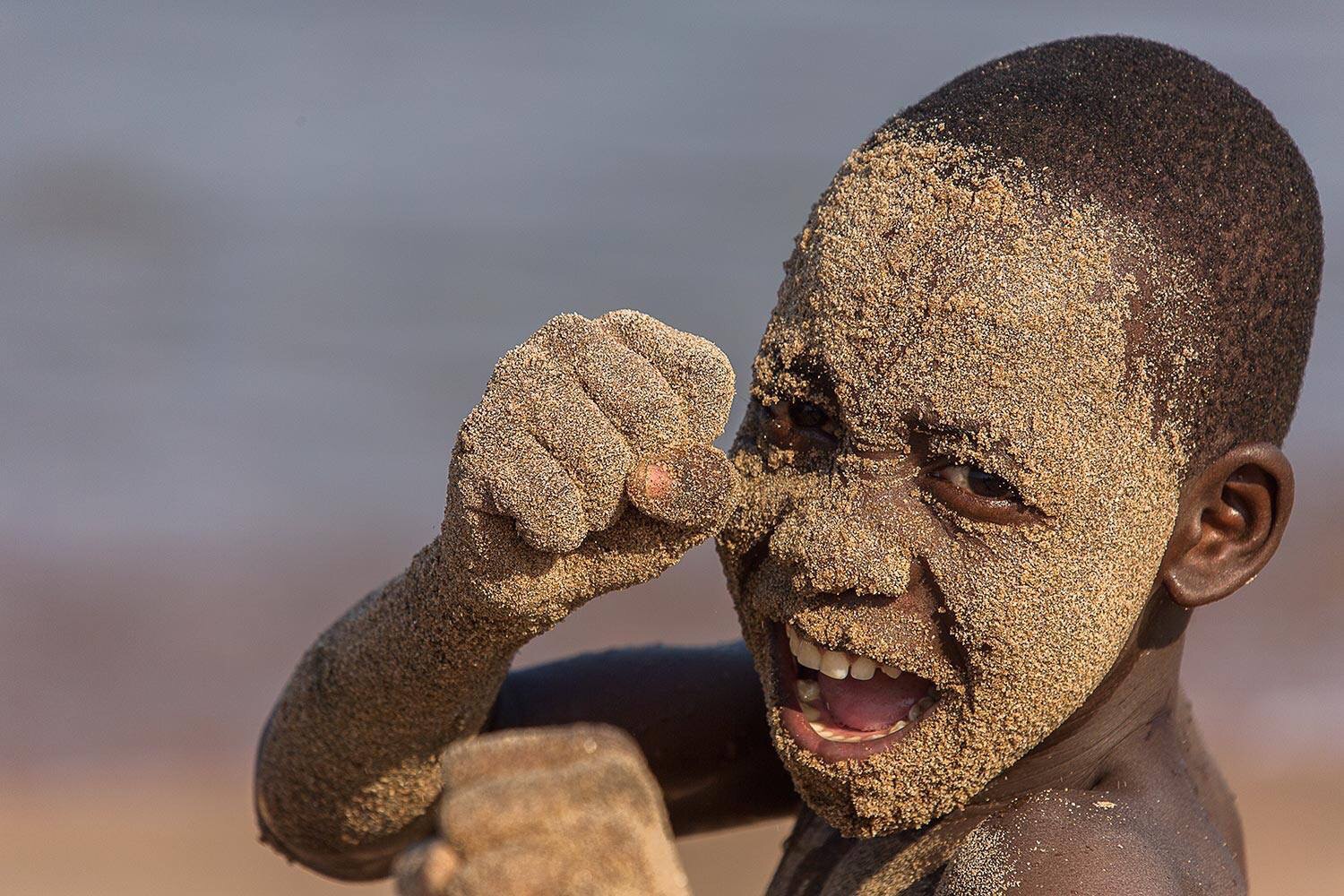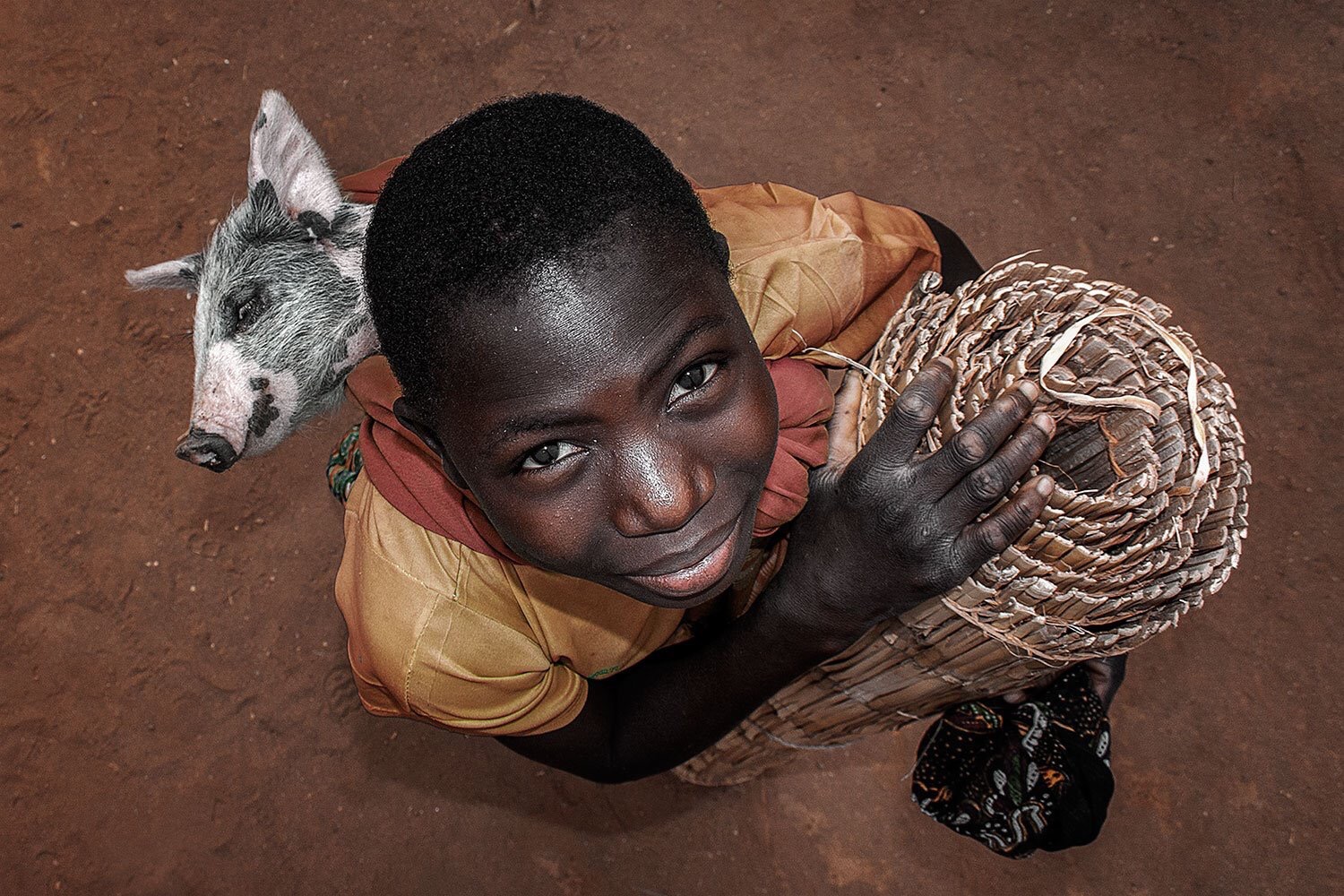It’s still very dry in Malawi. The rains are at least 6 weeks late and people who have planted the maize and cassava that they will live on this year are becoming quite worried. Most of the population here still live on a ‘subsistence’ basis. If the weather doesn’t break soon, it could be a disaster.
The dry weather still means that grass for the camp roofs can be harvested and timber poles cut from the forest to repair the camp fences after the strong winds we’ve had from the lake.
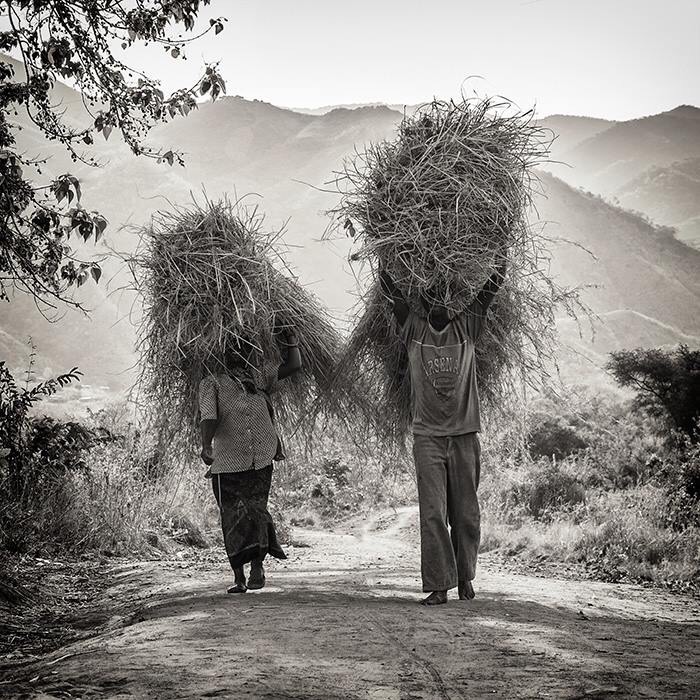
Although the weather has been beautiful, two things that the humidity and winds bring are fantastic, crashingly loud, toe-curling electrical storms (like the wonderful display we had on New Year’ Eve…
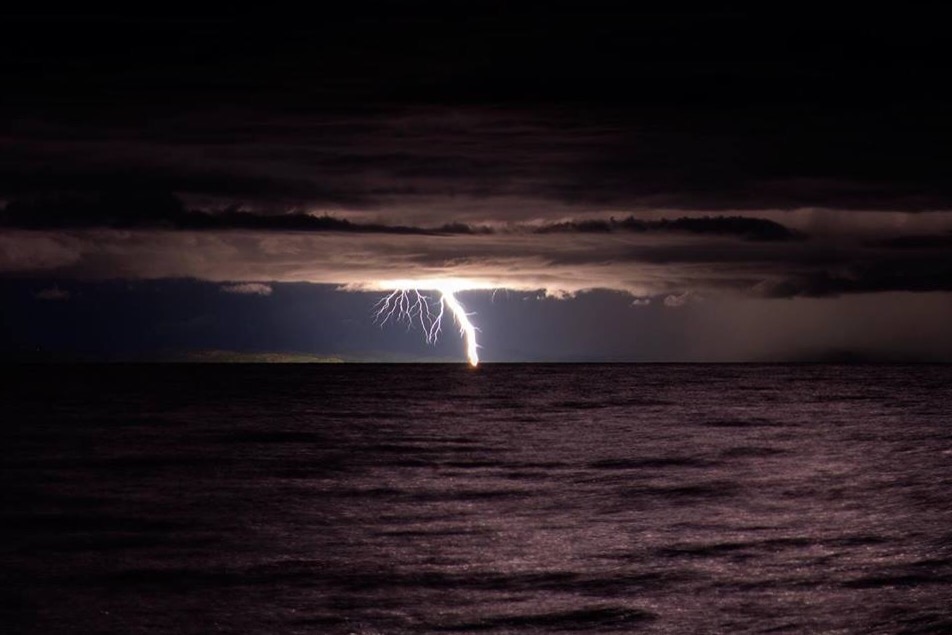
…and the phenomenon of Malawi Lake Flies. Often they precede a storm and, mistaken for fires in the distance, billions upon billions of them appear like tendrils of smoke bursting out of the water’s surface.
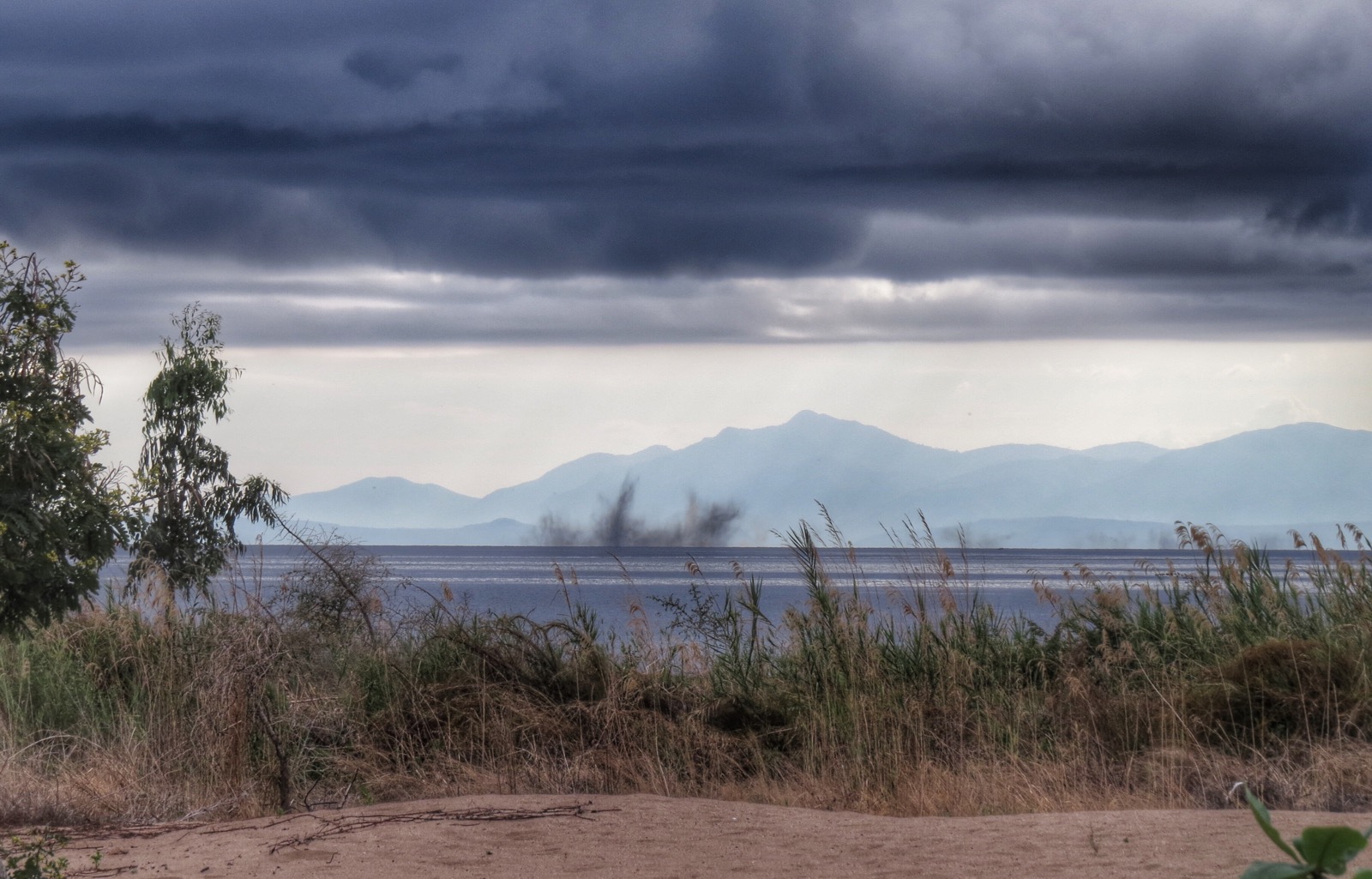
One or two times a year, they spend their entire 4-6 day life cycle mating over the lake. Their eggs drop to the surface of the water and then sink. There they can lie dormant for up to a year and, when environmental conditions are just right, they rise to the surface, hatch and begin the whole cycle again. Amazing to watch in the distance. The photo below shows them being blown by the breeze and about to engulf a couple of local fishing boats. Fortunately they don’t bite!
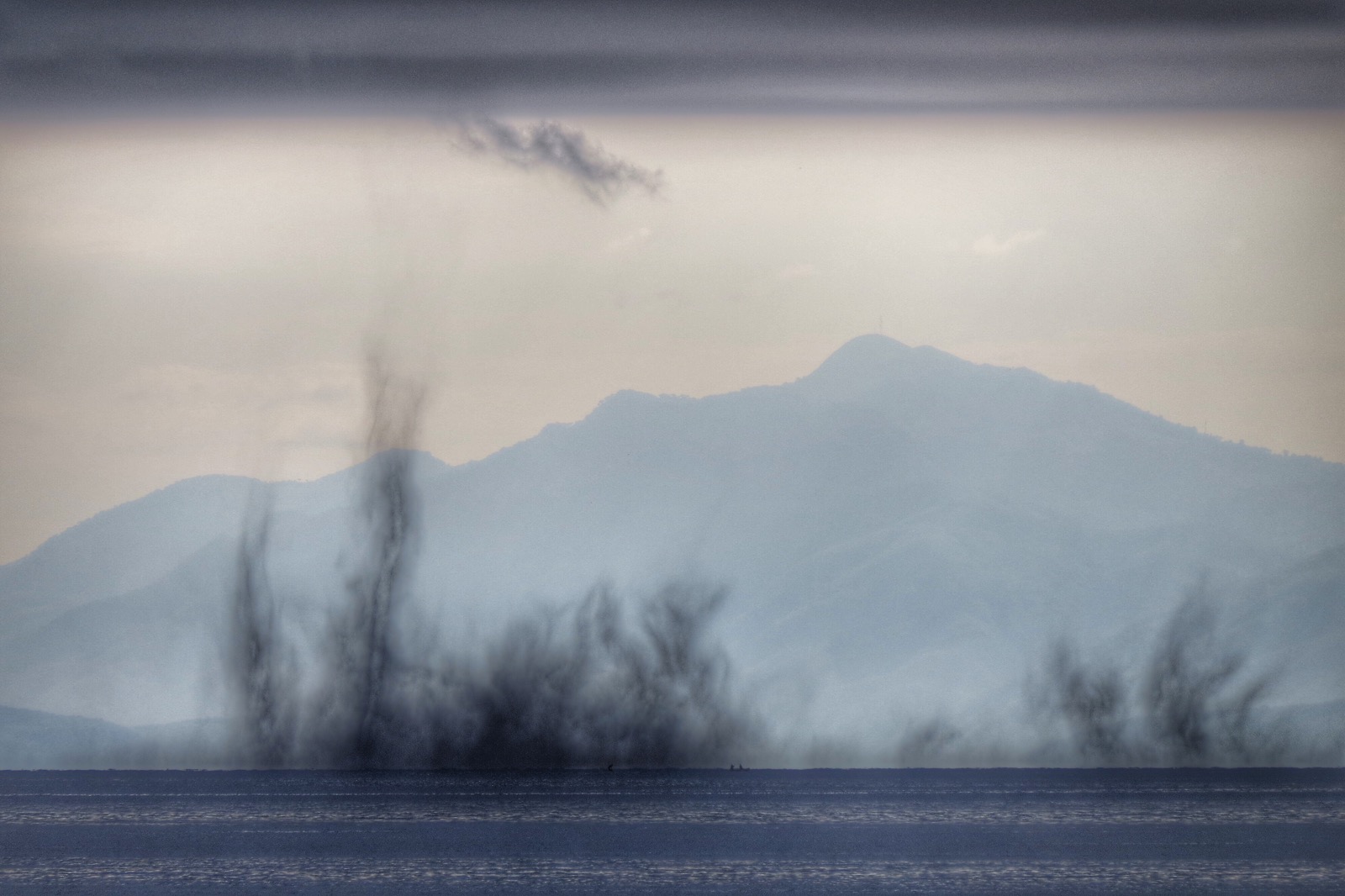
The clouds are beautiful to watch, but ominous to see. If the wind is in the wrong direction, they can be blown towards the camp. That doesn’t happen often during the day, but at night the lights in the camp can act like a magnet and we have to turn everything off as fast as possible.
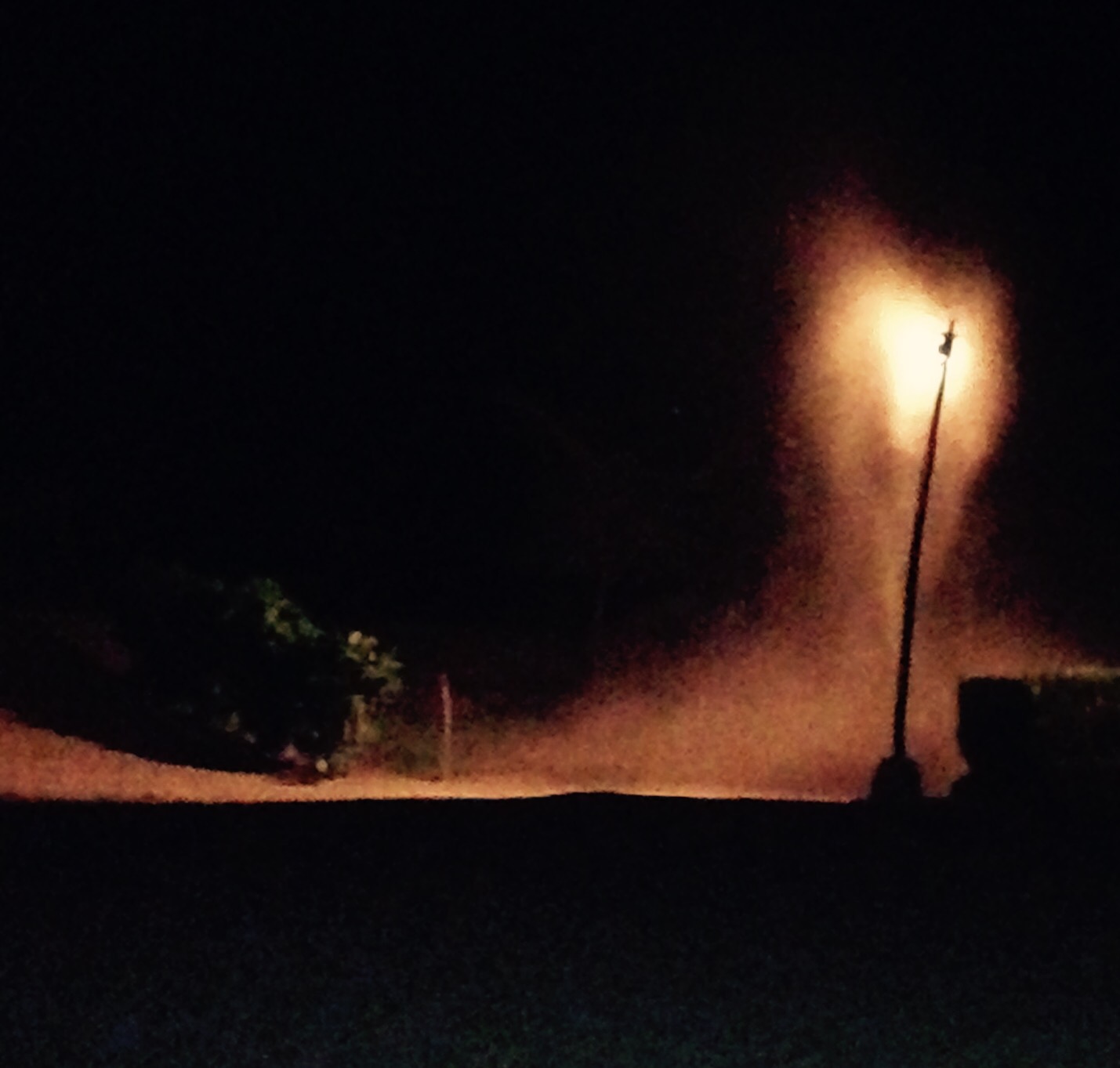
Still, most of our customers have learned how to drink beer in the dark when absolutely necessary. As the flies swarm through, the villagers rush about with wet bowls and pans, swatting them out of the air as they stick to the wet surfaces and collecting them in bags. They make a relish out of them for nsima or meatball-style patties and fry them as Lake Burgers.
At Chitimba, we just send the boys up into the roof to sweep them away. This is usually a job for Wanangwa as Zenyango is almost as scared of heights as he is of hard work.
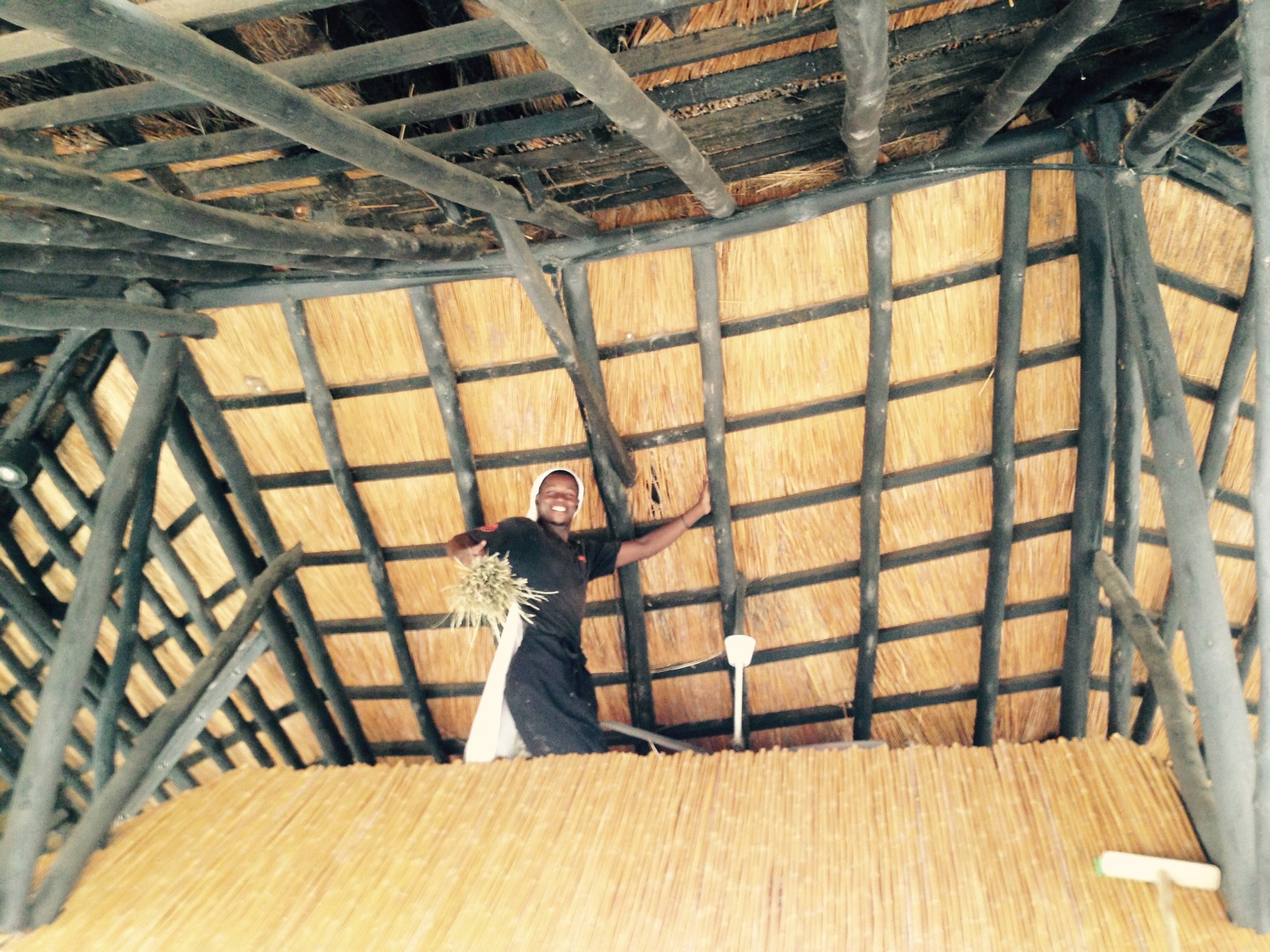
Nothing goes to waste though and they are collected up in bags so that the staff can take them home.
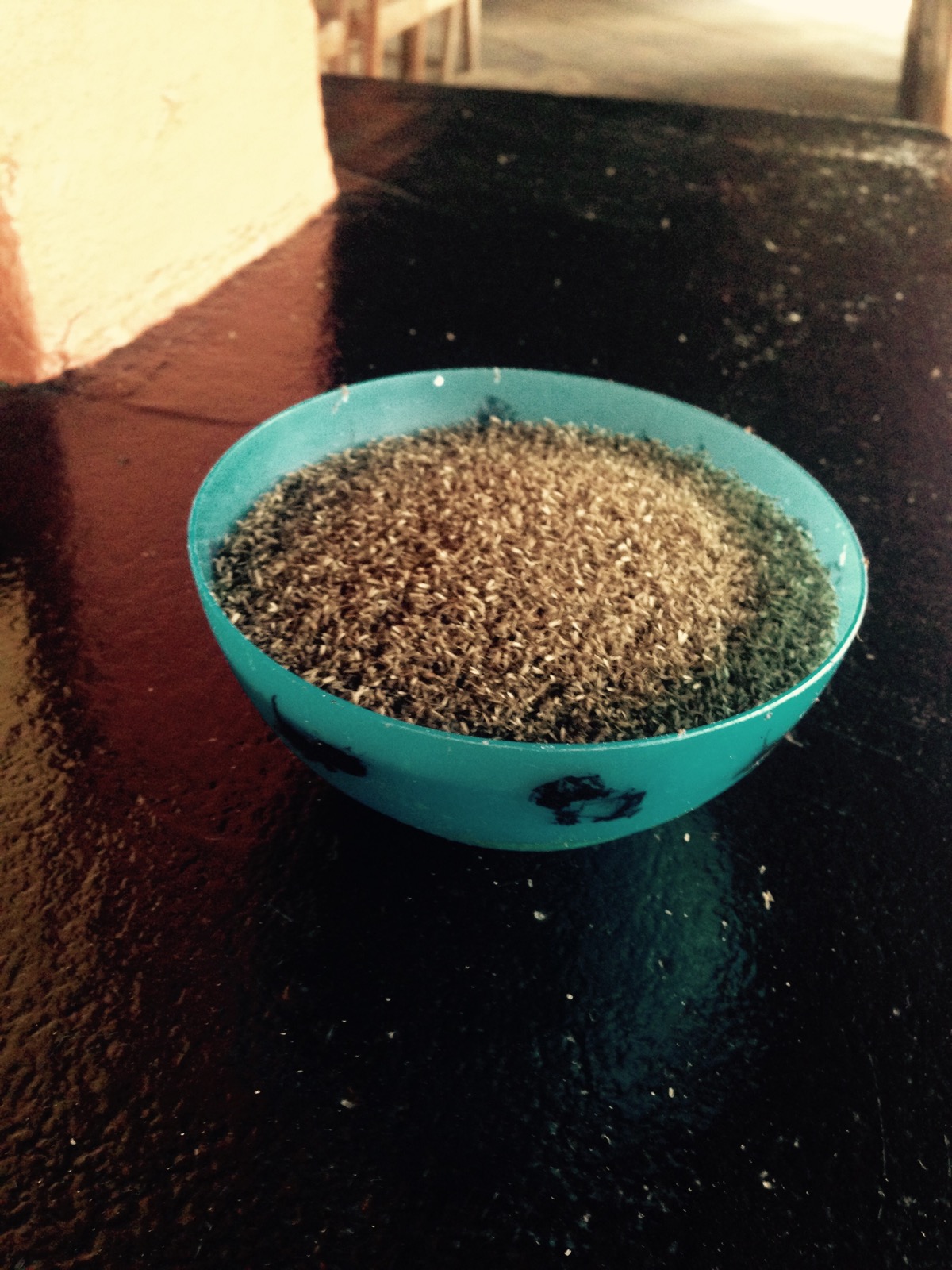
Ruth is one of Chitimba’s chambermaids. She’s a wonderful, funny, friendly woman (although not perhaps every man’s fantasy chambermaid) and she just can’t wait to get them home and cook them up. She prefers hers fresh.
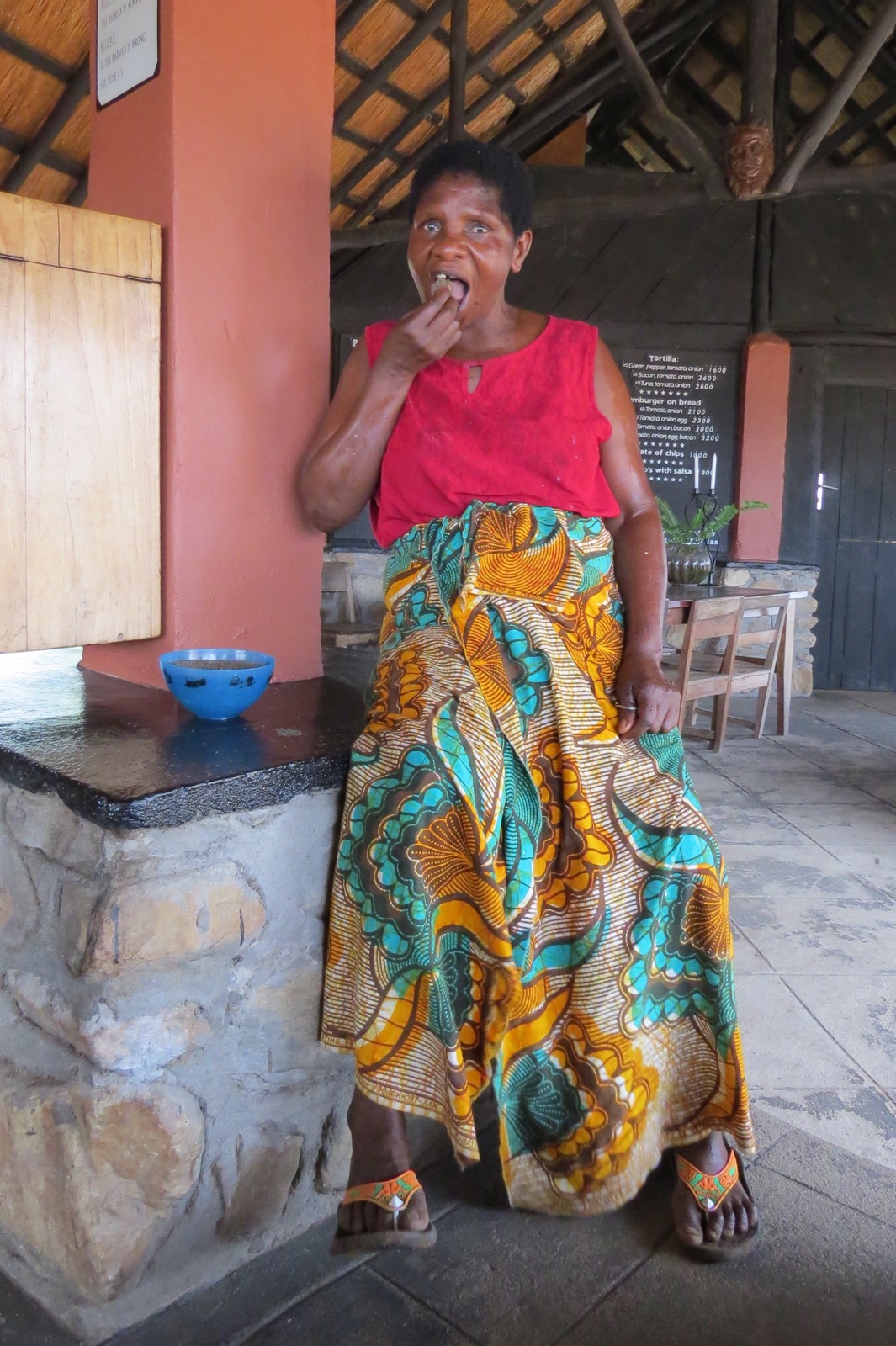
Elsewhere, the flies have to be swept up from the rest of the camp buildings. Newton, one of the chefs, got to work immediately in the outside kitchen. We had the woodcarvers outside the camp make up ‘A Round Tuit’ that we intended to present to Zenyango at the end of the week – he’s always taking his brush, rake or duster for a walk, never actually using any of them, and we thought he would be a deserving first recipient.
Newton found the ‘TUIT’ and, thinking it some sort of wonderful medallion, spent the morning dancing round his kitchen like Zorba The Greek. We hadn’t the heart to tell him what it meant.
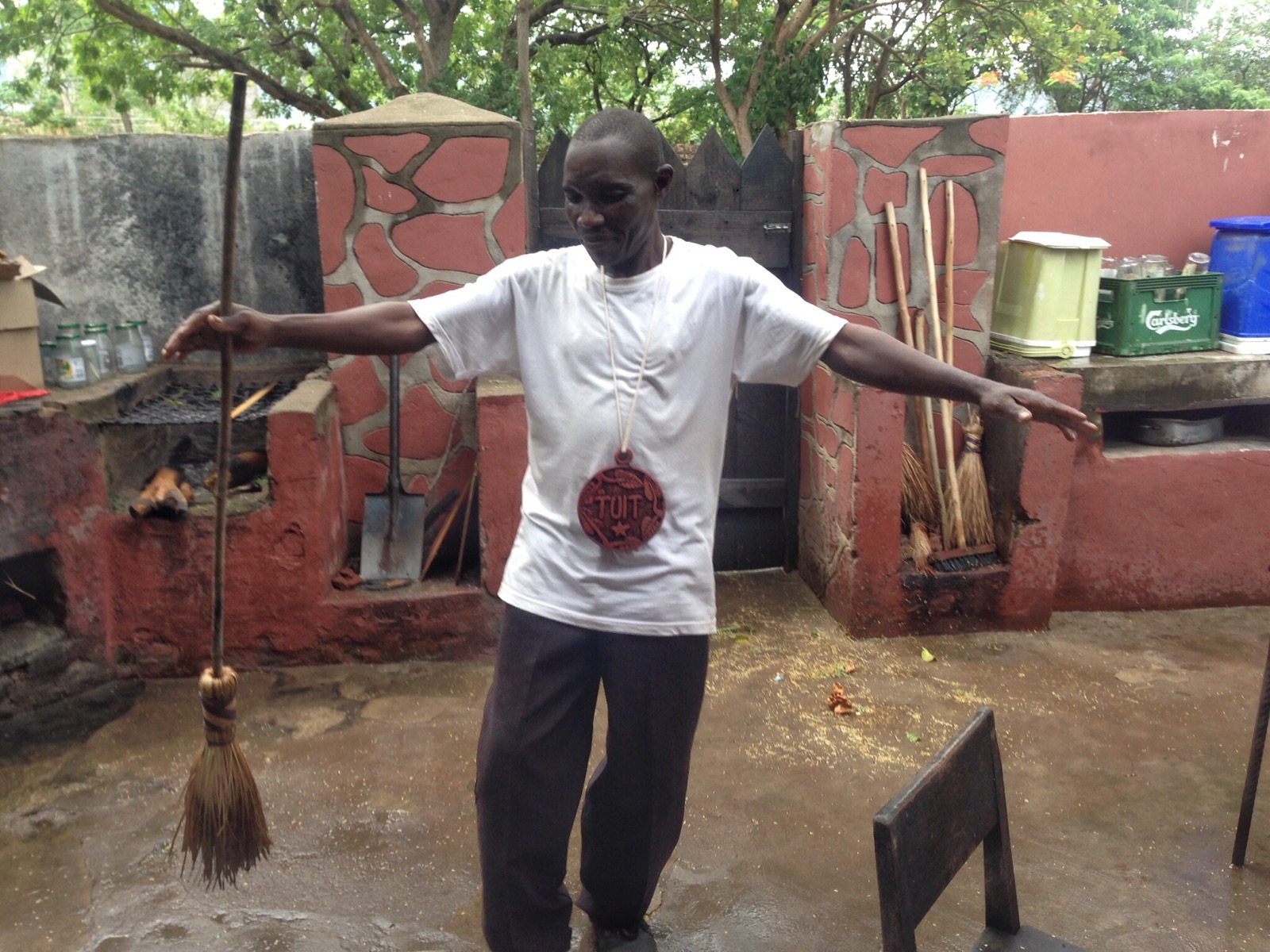
It’s encouraging how quickly we’ve felt like we had got into the swing of things managing the camp. It’s certainly tiring, but we’re not as out of our depth with most issues as we felt we would be.
The variety of guests keeps us on our toes. Most realise that this is the fourth poorest and one of the least sophisticated countries in the world. It’s also one of the most charming, scenic, uncommercialised areas of Eastern Africa.
The views of the Nyika Plateau, the wonderful panoramas and huge skies across the lake & mountains, the unpretentious friendliness of the locals, that’s what most people come for.
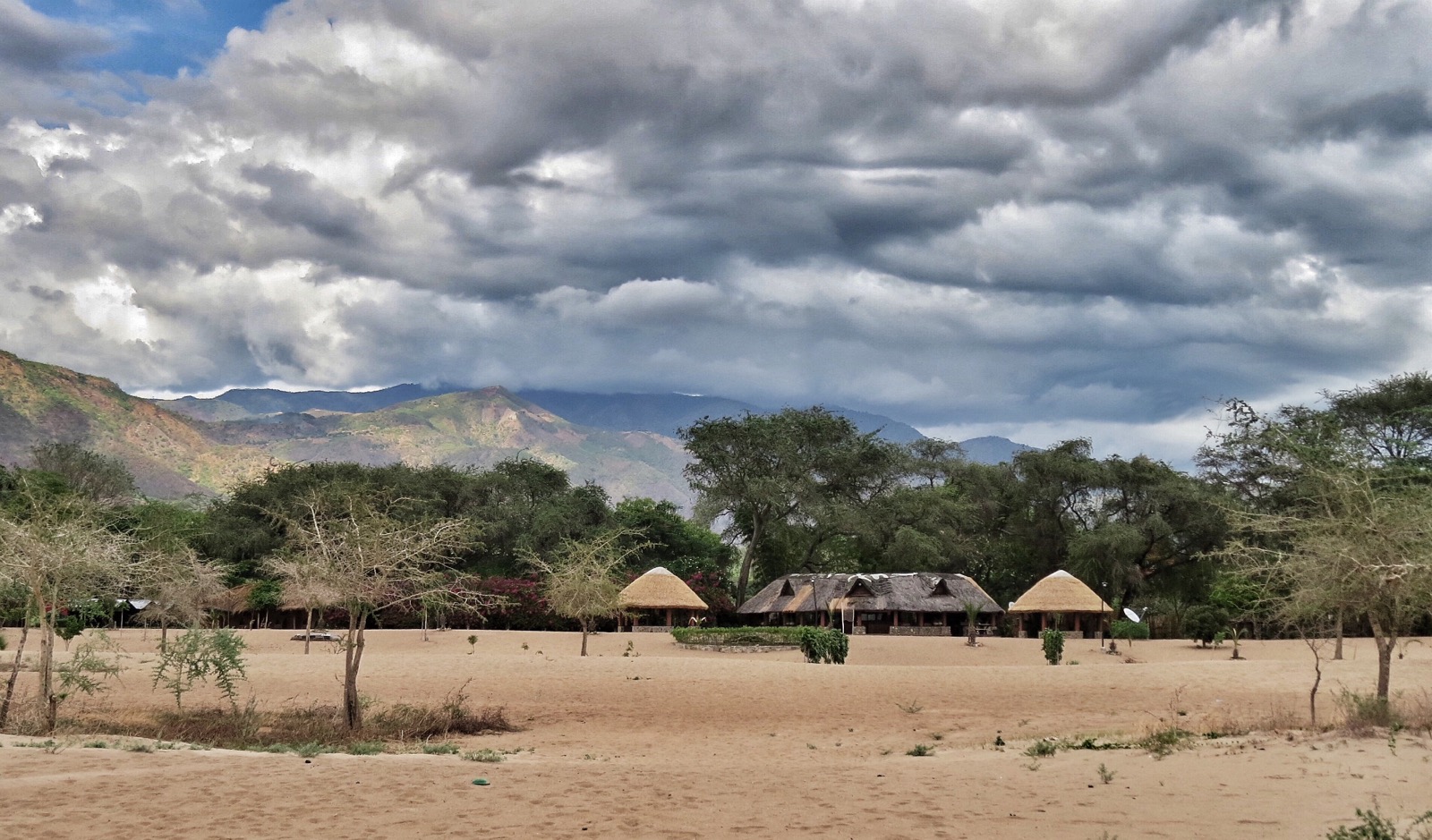
But it’s amazing what some people find to whine about: “the lake is over 100m from the bar and the sand is too hot”; “there’s no air conditioning in the rooms“; “I can’t Skype my friends on the slow internet“; “can you make a Singapore Sling?”
Some people need their heads banging together.
Generally our last few weeks running Chitimba Camp were busy but uneventful. We watched some wonderful (dry) storms building over the lake…
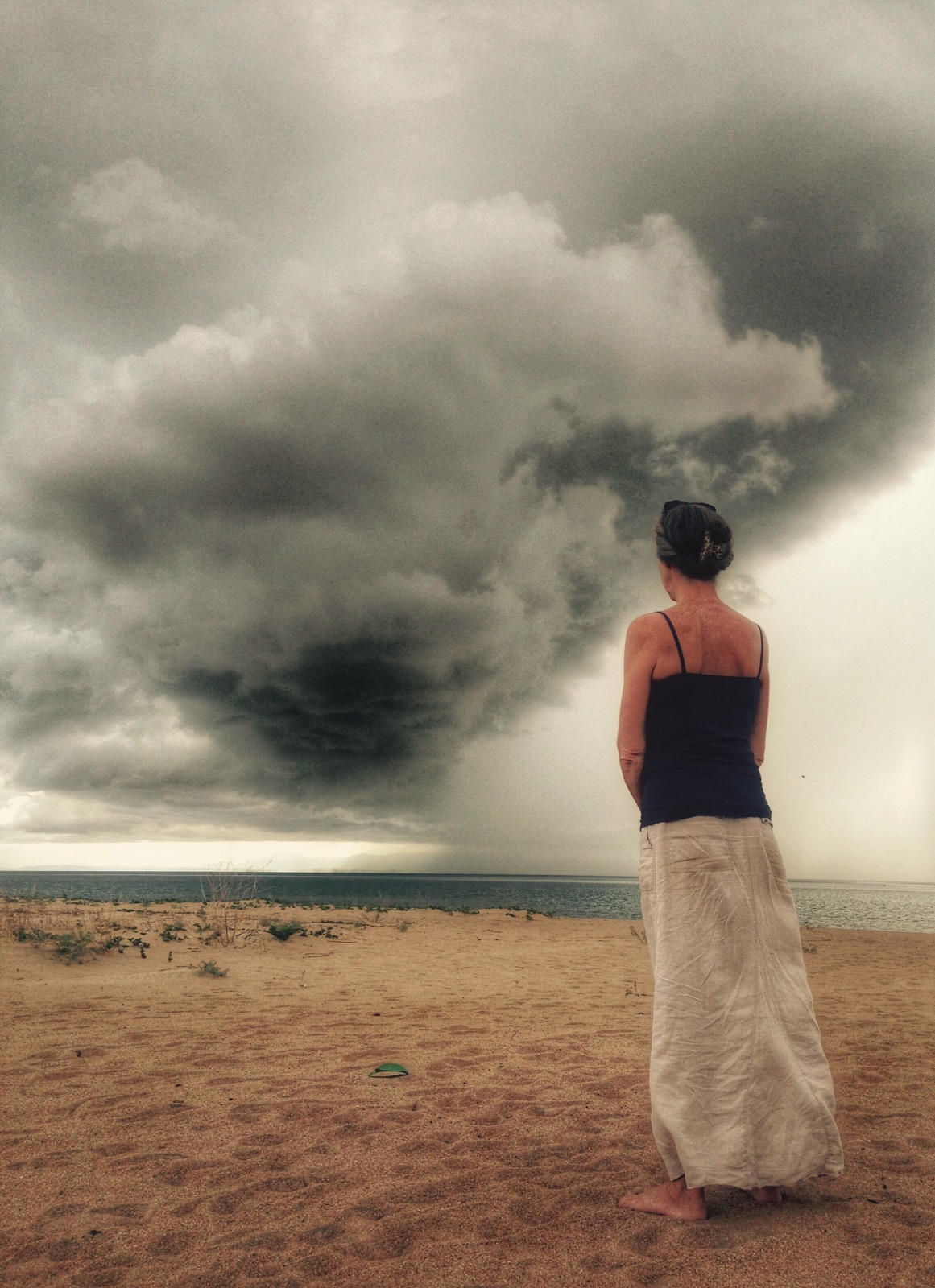
…the Genet escaped one night and we had to coax her down from the roof outside.

…we found a beautiful Pygmy Kingfisher outside our door after it had knocked itself out flying into our window…
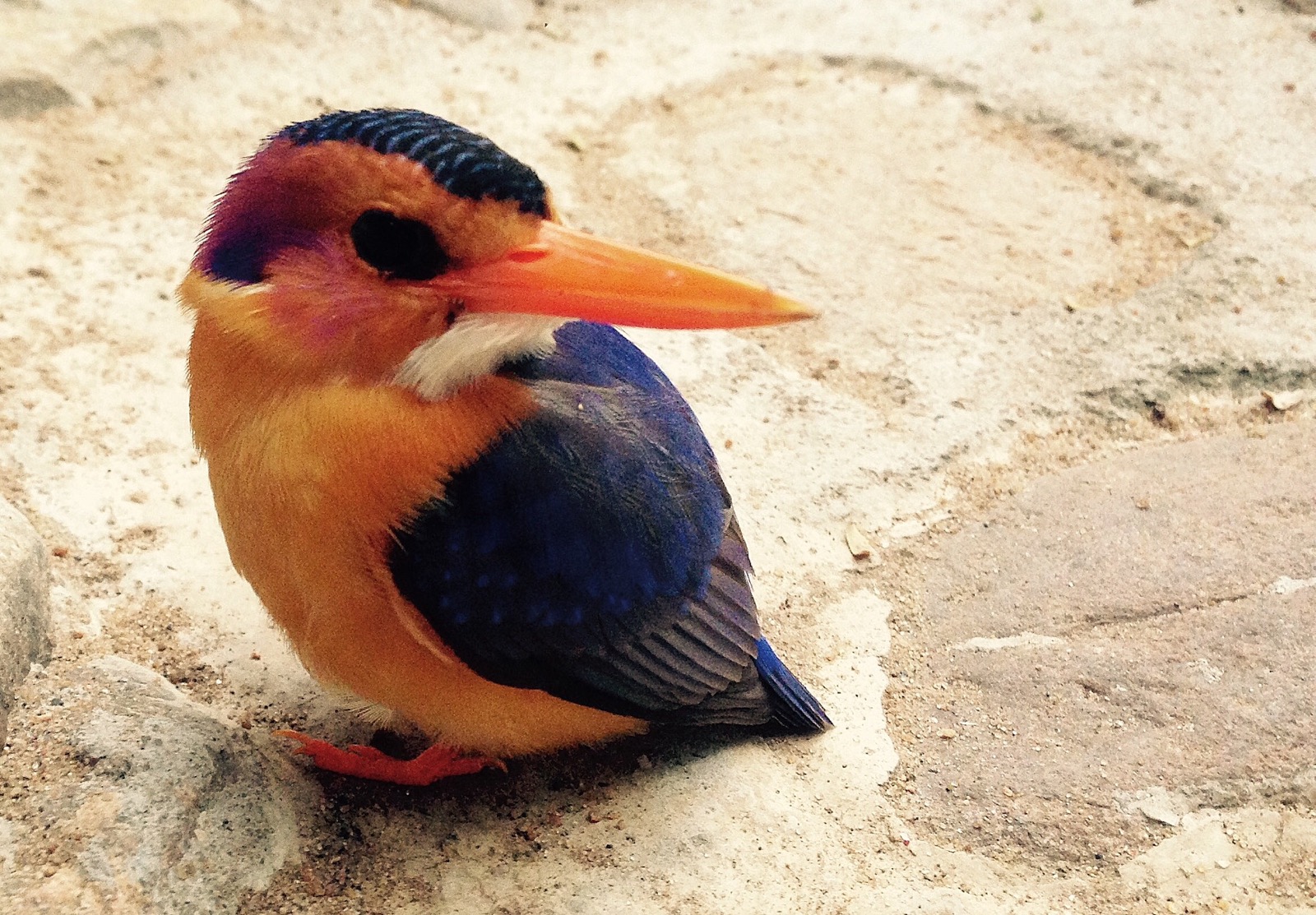
…Ziggy (one of 2 camp dogs) got stung by a scorpion. That was pretty worrying for a while and he was obviously in great pain. No vets for many miles, so we put some paraffin on the bite and managed to force antihistamine down him. Thankfully 36 hours later he was as right as rain. I doubt it would have enamoured us to Ed & Carmen if we’d managed to kill their dog while they were away!
All too soon, Ed and Carmen were back. They seemed pleased with the way the place had been run and in the time we spent together before they left, and since they returned, they have become good friends. Since they’ve been back, Ed has been working on my musical education (he has a collection of over 80,000 songs on hard drives and I’ve selected my favourite 3,000) and he’s been preparing to print some new postcards of the village children so that he can sell them at the camp and draft a photo book that he hopes to publish. He’s a tremendous photographer and kindly said I could put up a couple of his pictures on this blog just to demonstrate the atmosphere he manages to capture around the camp…
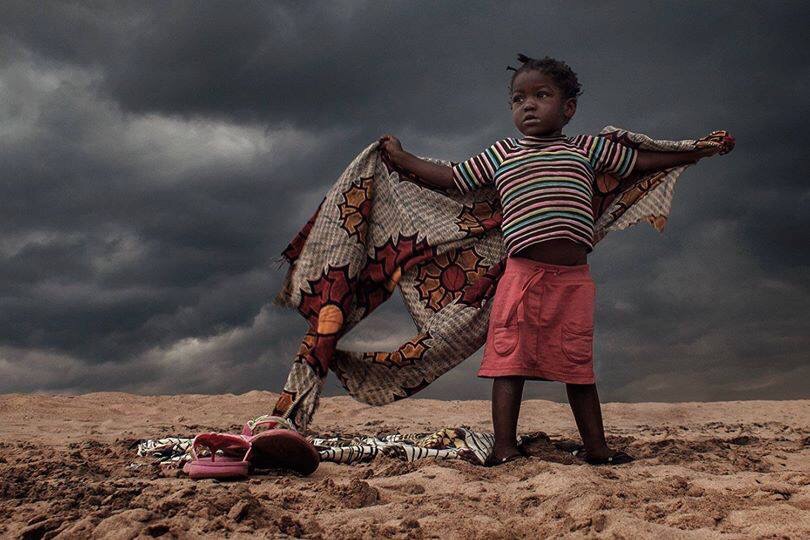
We’ll miss Ed & Carmen, miss the characters who work at the camp, miss the people from the village and certainly miss the wonderful, challenging, beautiful environment in which they live.
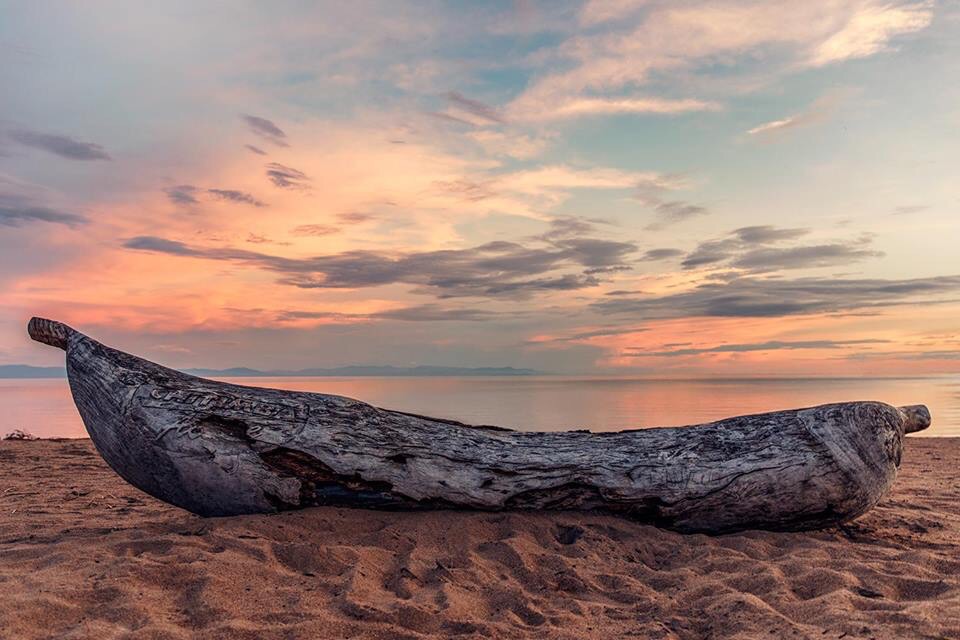
If we could buy the place, we would. But we have to leave, at least for now.
A couple of days later, we had stopped at Mzuzu for some basic supplies, spent the night about 300km South at Kande Beach (ok, but nothing to write home about) and headed down to Salima at the southern end of Lake Malawi.
There’s very little to the town of Salima other than a road out to Cape Maclear and a few cash machines. None of the ATMs were working so, we headed west towards Lilongwe, about 130km away. “No problem”, we thought. “We’ll just pick up some cash in Lilongwe and then either head back to Cape Maclear or go south, down to the wonderful Zomba Plateau and Southern Highlands area of Malawi.”
That wasn’t to be.
Only 20km outside Salima, flying down the road in the middle of nowhere, the engine lost all power, we came to a shuddering stop and couldn’t get the thing restarted.
I guess we’d been a bit pampered for the last few months at Chitimba Camp and had forgotten what life on the road in a Land Rover is like.
We broke down at 1pm and attracted a crowd by about 1.03pm.
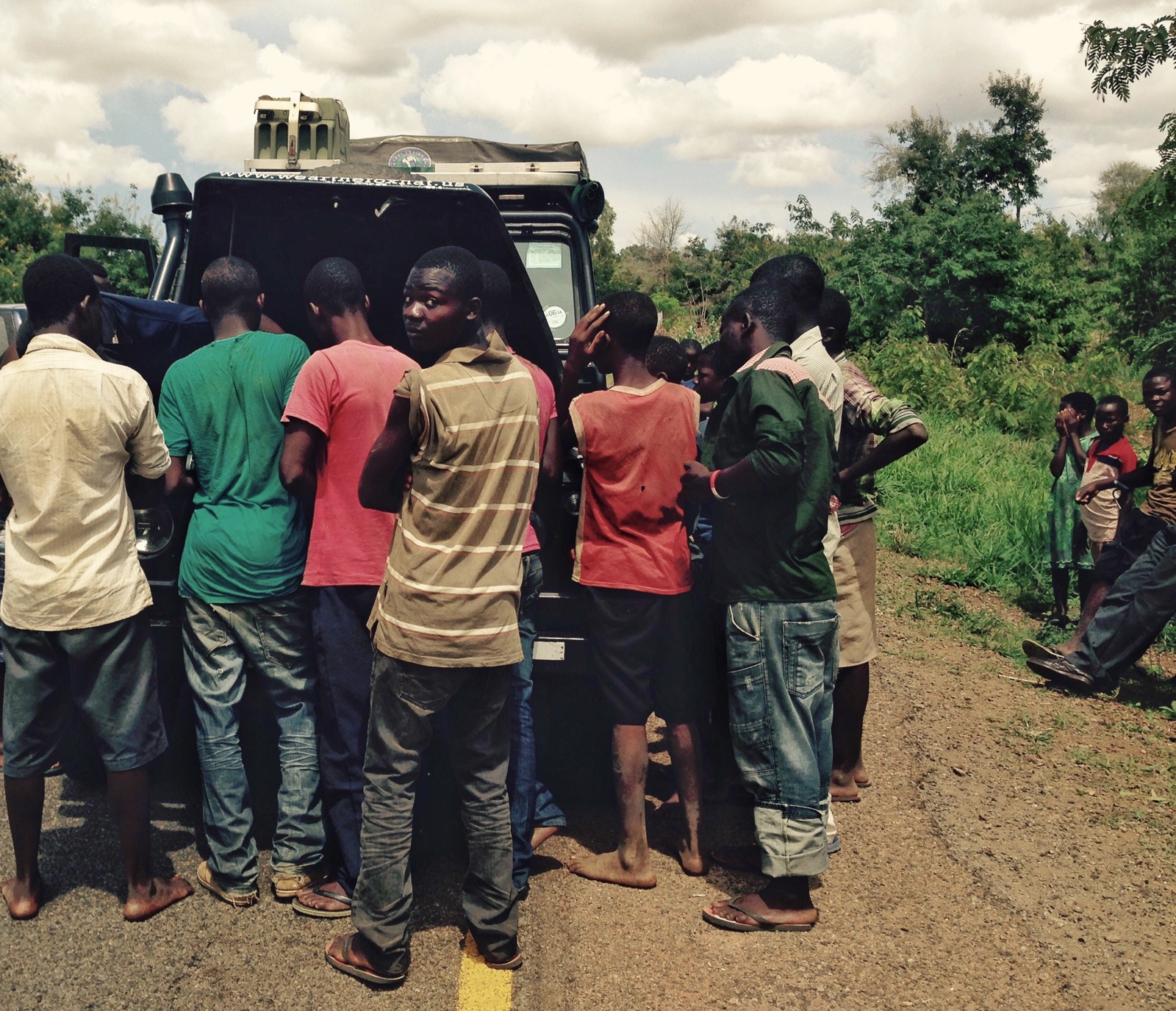
By 3pm we had Joseph, a local ‘mechanic’, draining the fuel system, convinced it was a blockage in either the filter or the tank sender.
By 4pm, we had the pipes from the fuel tank rigged up to a jerry can of fuel and were hoping to be able to limp the car at least part of the way to Lilongwe. We got about 300metres.
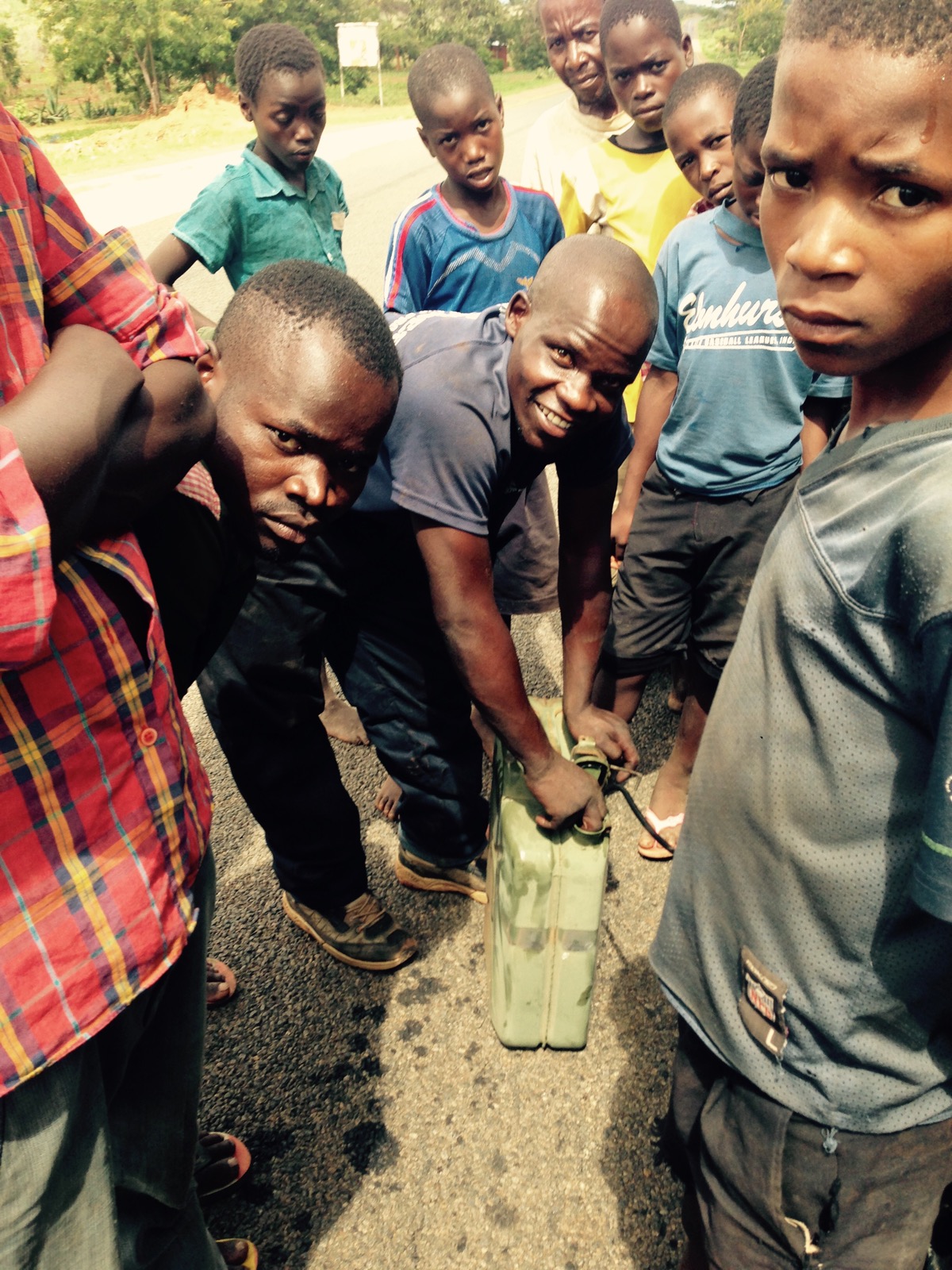
We bought all the phone credit we could get in the local village of grass roofs and mud huts (about $1) and managed to get a message to Ed & Carmen 500km away. They found the number of a guy who could possibly tow us and, after calling him, we sat and waited (our phone & data credit exhausted).
A pretty uncomfortable experience, in the middle of nowhere, only the occasional truck thundering past (no one even thought about stopping), pitch black and a car loaded with valuables. We were resigned to A sweaty, tense night having to sleep in the car (no way we were going to put up the tent in this location) and re-address the problem the following morning when, at around 11pm a ropey old pickup turned up, with a tow bar and winch on the back. He hooked us up, towed us 120km to Lilongwe (not a fun journey) and dropped the car right in front of the main entrance doors to Woodlands Lodge at the Wildlife Sanctuary at 2 o’clock in the morning.
That’s where we still are, 7 days later.


